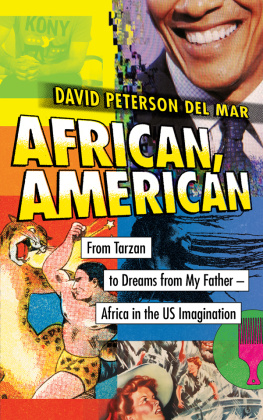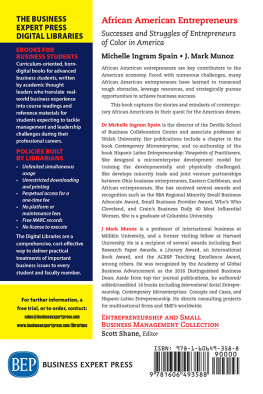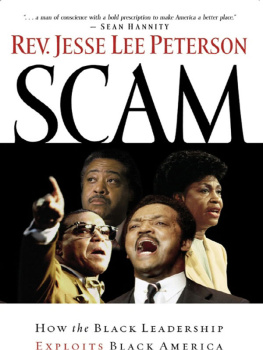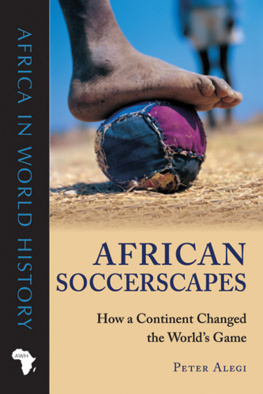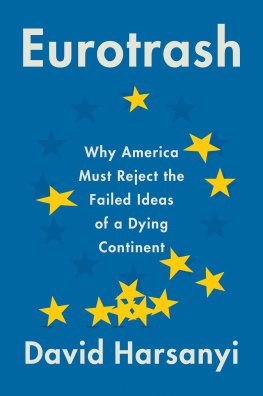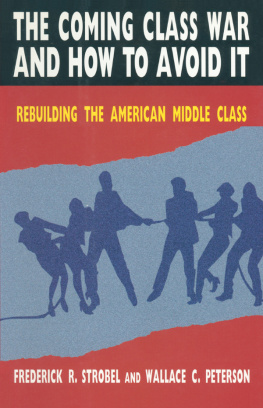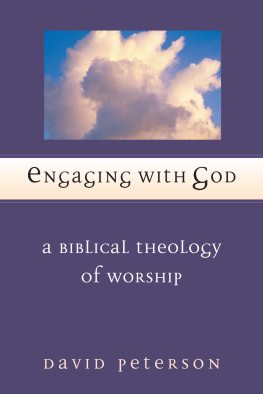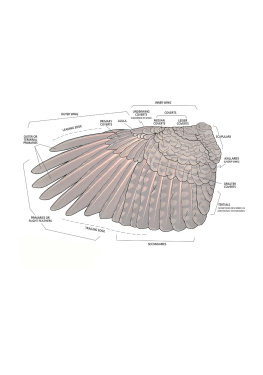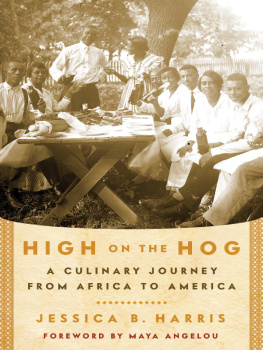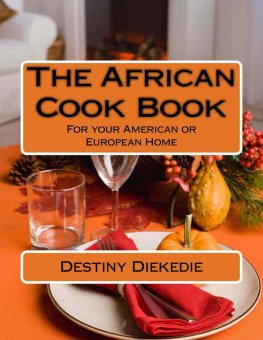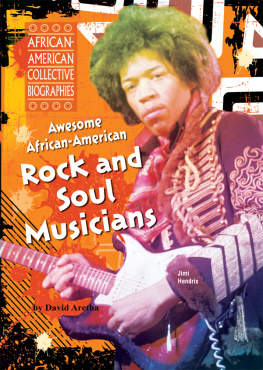David Peterson del Mar - African, American How America Dreamed a Continent
Here you can read online David Peterson del Mar - African, American How America Dreamed a Continent full text of the book (entire story) in english for free. Download pdf and epub, get meaning, cover and reviews about this ebook. City: USA, year: 2017, publisher: National Book Network International;Del Mar, David Peterson., Zed Books, genre: Art. Description of the work, (preface) as well as reviews are available. Best literature library LitArk.com created for fans of good reading and offers a wide selection of genres:
Romance novel
Science fiction
Adventure
Detective
Science
History
Home and family
Prose
Art
Politics
Computer
Non-fiction
Religion
Business
Children
Humor
Choose a favorite category and find really read worthwhile books. Enjoy immersion in the world of imagination, feel the emotions of the characters or learn something new for yourself, make an fascinating discovery.
- Book:African, American How America Dreamed a Continent
- Author:
- Publisher:National Book Network International;Del Mar, David Peterson., Zed Books
- Genre:
- Year:2017
- City:USA
- Rating:5 / 5
- Favourites:Add to favourites
- Your mark:
- 100
- 1
- 2
- 3
- 4
- 5
African, American How America Dreamed a Continent: summary, description and annotation
We offer to read an annotation, description, summary or preface (depends on what the author of the book "African, American How America Dreamed a Continent" wrote himself). If you haven't found the necessary information about the book — write in the comments, we will try to find it.
African, American How America Dreamed a Continent — read online for free the complete book (whole text) full work
Below is the text of the book, divided by pages. System saving the place of the last page read, allows you to conveniently read the book "African, American How America Dreamed a Continent" online for free, without having to search again every time where you left off. Put a bookmark, and you can go to the page where you finished reading at any time.
Font size:
Interval:
Bookmark:

AFRICAN,
AMERICAN
FROM TARZAN TO DREAMS FROM MY FATHER
AFRICA IN THE US IMAGINATION
DAVID PETERSON DEL MAR

African, American: From Tarzan to Dreams from My FatherAfrica in the US Imagination was first published in 2017 by Zed Books Ltd, The Foundry, 17 Oval Way, London SE11 5RR, UK
www.zedbooks.net
Copyright David Peterson del Mar 2017
The right of David Peterson del Mar to be identified as the author of this work have been asserted by him in accordance with the Copyright, Designs and Patents Act, 1988
Typeset in Haarlemmer by seagulls.net
Cover design: Alice Marwick
Cover photos used with the permission of Getty Images.
All rights reserved. No part of this publication may be reproduced, stored in a retrieval system or transmitted in any form or by any means, electronic, mechanical, photocopying or otherwise, without the prior permission of Zed Books Ltd.
A catalogue record for this book is available from the British Library
ISBN 978-1-78360-854-6 hb
ISBN 978-1-78360-853-9 pb
ISBN 978-1-78360-855-3 pdf
ISBN 978-1-78360-856-0 epub
ISBN 978-1-78360-857-7 mobi
For Brando Akoto
Surely I spoke of things I did not understand, things too wonderful for me to know.
Job 42:3, NIV
CONTENTS
ACKNOWLEDGMENTS
I am particularly indebted to the two scholars who provided exceptionally detailed and perceptive feedback on an early draft of a chapter. A third commented on the revised manuscript. Ken Barlow of Zed Books has been responsive and helpful throughout the process. Wendy del Mar and Daniel Pope provided crucial advice at various stages of the project. Hope Arnold gave the manuscript the benefit of a very close reading near its completion, and Paul Semonin again offered a particularly incisive and generous critique. I am grateful to Taylor & Francis for allowing me to reprint parts of At the Heart of Things: Peace Corps Volunteers in Sub-Saharan Africa, David Peterson del Mar, African Identities , reprinted by permission of Taylor & Francis Ltd.
This books notes are but a faint indication of how heavily I relied on the scholarship of others. Of the many writers who taught me about this books diverse subjects, I am particularly indebted to: Kwame Anthony Appiah, Algernon Austin, Kenneth M. Cameron, James T. Campbell, Jay Kirk, and Kathryn Mathers.
Since 2010 it has been increasingly difficult to distinguish between this book, my work linking schools in Ghana and the US through the nonprofit Yo Ghana!, my friendships with Africans in Ghana and the US, and my friendships with Americans who practice the art of friendship as if they were Africans.
As always, my wife and son, Wendy and Peter del Mar, have been supportive and patient. Wendy spent a very formative year in Kenya before I met her; working on this book has helped me to appreciate how Kenyans deepened and shaped her into the woman I am so honored to call my life partner. Peters courage and resilience continue to astonish me. Muril Helen and Robert Demory, Jon and Lois Peterson, Armand Smith, Lisa and Randy Varga, Kanani and Mike Badnin, Nicole Smith, and Brenda and Ben Fowler have shown and taught me about family loyalty and love. John Goncalves and Barbara Segal, Bill Larremore, Barbara Peterson-OHare, Todd Olsen, Wayne Randall, Paul Semonin and Anuncia Escala, Eileen and Mark Summit, Thomas Wright, David Porter and the Old Nicks, and Barbara Peterson-OHare, and Oregon Uniting have been like family.
The transformational nature of my first trip to Ghana owed a great deal to my fellow travelers: Bee Jai Repp, Barnabas Omulokoli, Lee Nusich, and Peter and Beth Okantey. Thank you Davina Peterson del Mar Nipaba Brew for your smile. I have been blessed with extraordinarily supportive Chairs in the Portland State University Department of History for the duration of this project: Linda Walton, Tom Luckett, and Tim Garrison. Jeff Brown and Andrea Janda are exemplary departmental organizers, and I am also grateful to T-Rex and the rest of the gang at the PSU Library for keeping a diverse range of books flowing my way.
The administrators, teachers, volunteers, board members, and supporters of Yo Ghana! teach and inspire me beyond measure, particularly: Abdul-Mumuni Abdallah, Joseph Abdulai, Nurideen Abubakari, Susan Addy, Nate Aggrey, Kofi Agorsah, Victoria Agorsah, Daniel Ahama, Lilly Glass Akoto, Kwami Akoto, Sewaah Akoto, Moses Akumey, Nantogma Alhassan, Albert Amoako, Mercy and Rudolph Ampofo, Eric Ananga, Kofi Anane, Bishop Seth Anyomi, Alexa Arnold, Amy Bogran, Gilbert Nipaba Brew, LeeAnn Bronson, Jane Carlton, Sister Mary Divya, Eric Donkoh, Rockson Serlom Dordoe, Daniel Dotse, Francis Dzata, Meghan Eigo, Matthew Essieh, Kankam Mensah Felix, Sarah Florig, Dominic Fordwour, Agbey Gedza, Jeanne Gering, John Goldrick, Rashid Hafisu, Wisdom Havor, Ginny Hoke, Ibrahim Ibrahim, Aaron Jones, Komi Kalevor, Berthy Kpiebaya, Noah Kurzenhauser, Sarah Kutten, Yves Labissiere, Marilyn Lucas, Father Anselmus Mawusi, Dorcas Mensah, Martha Montgomery, Deborah Naugler, Kwame Apoku-Amankwa, Ernest and Regina Opoku-Ansah, Daniel Opong, Rhiannon and Sarah Orizaga, Lizzie Petticrew, Justice Prah, Carolina Ramirez, Lucy Ampate Sarpong, Delaney Sharp, Joshua Siu, Tim Smith, Mike Sparks, Rebecca Summit, Roy Thompson, Harriette Vimegnon, Essan Weah, and Michael Williams. Thank you especially to co-founder Elizabeth Fosler-Jones for your joyful fearlessness. The students and staff of Ashesi University left me astounded at what education and service can look like.
I am grateful to the people of Portland International Church for showing me what Gods love looks like, particularly: Pastors Kofi Nelson Owusu and Carol Nzem, along with Saundra Nelson Owusu, Marinus Nzem, and their children; the Kwasi and Elsie Agyapong family; Seth and Regina Asare; Isaya Atonga; the Alex and Beatrice Nkansah family; the Justice and Linda Owusu-Hienno family; the Augustine and Patience Sewor family; Yves and Harriette Vimegnon; Kofi Tweneboah and Margaret Nyarko; Frempong Owusu; James Vandervort; the Edgard and Sanctifiee Luhshima Musafiri family; Kevin Mulohwe; and Willy Musavyi. Thank you Sister Isabel Karnga for your unstinting care and challenges. And dearest Brando: Thank you for showing me what stubborn, abundant love looks like, for sharing your blessed and painful life, and for lighting the path. What a joy.
I am especially thankful to the Friends of History, Portland State University, for their support in creating the books index.
PREFACE
AFRICA IN MY HEAD
In 2006 a seventeen-year-old student who had just spent a summer installing irrigation pipes in Ethiopia asked herself: Why Africa? Why am I not motivated by Iran or something? She concluded that unlike other parts of the world, Africas problems were simple. I can organize Africa in my head. Whether revealing western virtue or baseness, passive, abject Africa offered a blank space for white journeys of self-discovery.
Respectable black Americans, fearful of being associated with savage Africa, also treated it as a place apart. Unlike their Caribbean counterparts, they became Creoles well before the American Revolution, creating a hybridized, African-American identity, culture, and society out of traumatized African fragments. By the early nineteenth century, even as slavery spread, black men and women aspiring to economic and social respectability embraced Victorian cultural norms such as temperance and church membership. Frederick Douglas, the distinguished self-made abolitionist and reformer, insisted that America, not Africa, was home. Missionary Alexander Crummell favored resettling black Americans in Africa but described it as a place of moral desolation and spiritual ruin.
Next pageFont size:
Interval:
Bookmark:
Similar books «African, American How America Dreamed a Continent»
Look at similar books to African, American How America Dreamed a Continent. We have selected literature similar in name and meaning in the hope of providing readers with more options to find new, interesting, not yet read works.
Discussion, reviews of the book African, American How America Dreamed a Continent and just readers' own opinions. Leave your comments, write what you think about the work, its meaning or the main characters. Specify what exactly you liked and what you didn't like, and why you think so.

